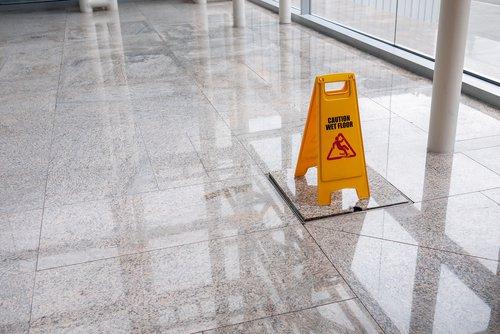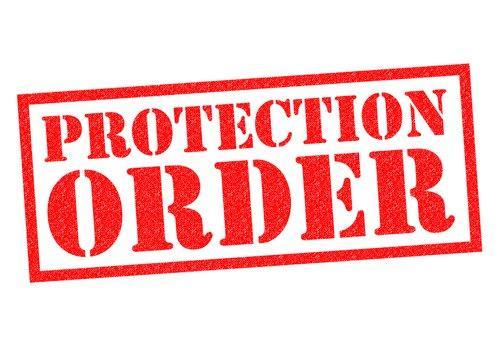Recent Blog Posts
Last Will and Testament in Time for Hajj
 For Muslims in Oakbrook Terrace who are currently planning for Hajj, you should ensure that you have your affairs in order before you begin upon this once-in-a-lifetime journey. While preparation for Hajj is an important time to create a Last Will and Testament, it is important for everyone, regardless of your income or the economic value of your possessions, to think about inheritance issues. Islamic law has specific mandates when it comes to inheritance, and if you do not prepare a last will and testament, your estate may be subject to Illinois intestate succession law.
For Muslims in Oakbrook Terrace who are currently planning for Hajj, you should ensure that you have your affairs in order before you begin upon this once-in-a-lifetime journey. While preparation for Hajj is an important time to create a Last Will and Testament, it is important for everyone, regardless of your income or the economic value of your possessions, to think about inheritance issues. Islamic law has specific mandates when it comes to inheritance, and if you do not prepare a last will and testament, your estate may be subject to Illinois intestate succession law.
The Hajj is the largest gathering of people worldwide, and for many Muslims, and given the sheer number of people, accidents can happen. To be sure, millions of people undertake this annual five-day pilgrimage, and you should have plans for your estate in place before you travel. An experienced Islamic lawyer in DuPage County can assist you today.
Termination of Parental Rights
 For Muslim families in the Oakbrook Terrace area, family law issues involving parenthood and the termination of parental rights can be difficult ones to face. Generally speaking, the Illinois courts want to do their best to keep both parents in a child’s life and to ensure that the child has both parents play a role in the child’s life and upbringing as long as it is in the best interests of the child. Yet in some situations, it may be in the best interests of the child to terminate the rights of a parent. What does it mean when the law decides to terminate a parent’s rights? In short, it means that the parent not only will not be responsible financially for the child, but that parent also will not make any decisions about the child’s care or upbringing.
For Muslim families in the Oakbrook Terrace area, family law issues involving parenthood and the termination of parental rights can be difficult ones to face. Generally speaking, the Illinois courts want to do their best to keep both parents in a child’s life and to ensure that the child has both parents play a role in the child’s life and upbringing as long as it is in the best interests of the child. Yet in some situations, it may be in the best interests of the child to terminate the rights of a parent. What does it mean when the law decides to terminate a parent’s rights? In short, it means that the parent not only will not be responsible financially for the child, but that parent also will not make any decisions about the child’s care or upbringing.
Voluntary Termination and the Adoption Act
It is important to understand that Illinois law does not allow one parent simply to petition to terminate the other parent’s rights. Rather, parental rights can be terminated either voluntarily or involuntarily, and the court takes these cases very seriously. Under 750 ILCS 50/1 and other relevant Illinois law, the voluntary termination of a parent’s rights generally can occur in one of the following circumstances:
Illinois Divorce 101
 Last year, Illinois family law changed in a number of ways, and it is important to understand how these changes might impact you and your family in the event of divorce. Divorce is difficult for Muslim families in DuPage County under any circumstances, but understanding how our state’s laws function during divorce proceedings can help you to be prepared for the weeks and months ahead.
Last year, Illinois family law changed in a number of ways, and it is important to understand how these changes might impact you and your family in the event of divorce. Divorce is difficult for Muslim families in DuPage County under any circumstances, but understanding how our state’s laws function during divorce proceedings can help you to be prepared for the weeks and months ahead.
No Fault Divorce in Illinois
We mentioned above that Illinois family law has recently undergone some changes. All of those alterations are reflected in the current Illinois Marriage and Dissolution of Marriage Act (IMDMA). One of the first major changes concerns grounds for divorce. Until just recently in Illinois, divorcing spouses could cite grounds for divorce such as adultery, impotence, mental anguish, and habitual drunkenness. However, those terms are different now.
Like numerous other states, spouses in Illinois who seek a divorce will simply cite irretrievable breakdown or irreconcilable differences. In other words, spouses no longer will claim that one party is at fault for the divorce, thus the shift to “no-fault” divorce in our state. To get divorced based on no-fault grounds, the parties must be separated for six months and must waive a two-year waiting period. In the event that one of the spouses will not waive the two-year waiting period, the other spouse still may seek a no-fault divorce once the two-year waiting period has completed.
Premises Liability and the Importance of Liability Insurance
 Sometimes customers or other individuals get hurt in slip and fall accidents at businesses. For business owners, learning about a serious slip, trip, and fall injury can be disconcerting, given that these accidents can result in severe injuries to the head, neck, and back, and sometimes they also result in broken bones. In short, slips and falls are serious, and businesses can be held liable in certain circumstances.
Sometimes customers or other individuals get hurt in slip and fall accidents at businesses. For business owners, learning about a serious slip, trip, and fall injury can be disconcerting, given that these accidents can result in severe injuries to the head, neck, and back, and sometimes they also result in broken bones. In short, slips and falls are serious, and businesses can be held liable in certain circumstances.
Litigation can be costly when someone falls and suffers serious injuries at your business. At Farooqi & Husain Law Office, we understand how detrimental it can be to a small business owner to face a serious premises liability lawsuit. We are here to help members of the DuPage County Muslim community, and we want to do all that we can to ensure that your business thrives. In order to prevent a costly premises liability claim, it is important to think carefully about purchasing premises liability insurance anytime you decide to open your own business.
Drug Charges and the Fourth Amendment
 If you are arrested on drug charges, it is important to understand your rights. In particular, members of the Muslim community in Oakbrook Terrace should have a sense of their rights under the Fourth Amendment, which prohibits illegal searches and seizures of property. Constitutional law can be extremely complicated, and you should always discuss your case with an experienced DuPage County criminal defense lawyer.
If you are arrested on drug charges, it is important to understand your rights. In particular, members of the Muslim community in Oakbrook Terrace should have a sense of their rights under the Fourth Amendment, which prohibits illegal searches and seizures of property. Constitutional law can be extremely complicated, and you should always discuss your case with an experienced DuPage County criminal defense lawyer.
However, it is nonetheless a good idea to have a sense of when and how the Fourth Amendment can protect you in the event that you are stopped or your property is searched. For example, when you refuse to give consent, can a law enforcement official still search your car or your home? And what does it mean for a law enforcement official to have "probable cause" to stop to conduct a search of your automobile or your home?
Fourth Amendment Overview
Temporary Support and Illinois Divorce Law
 If you are filing for divorce or are in the midst of dissolving your marriage, how will you be impacted by the availability of temporary support? For many Muslims in DuPage County, temporary support is a significant issue. If you were the primary earner in your household during your marriage, you will need to be aware that the court can order you to pay temporary support for your spouse and children until other orders are finalized. And if you were not the primary earner in your family, you are likely to have questions about whether you will be eligible for temporary spousal support and temporary child support until your divorce is completed.
If you are filing for divorce or are in the midst of dissolving your marriage, how will you be impacted by the availability of temporary support? For many Muslims in DuPage County, temporary support is a significant issue. If you were the primary earner in your household during your marriage, you will need to be aware that the court can order you to pay temporary support for your spouse and children until other orders are finalized. And if you were not the primary earner in your family, you are likely to have questions about whether you will be eligible for temporary spousal support and temporary child support until your divorce is completed.
Major changes to Illinois’s marriage and divorce laws will take effect on January 1, 2016, and one of those new laws deals specifically with temporary support.
Establishing the Need for Temporary Support
Domestic Violence Charges and Orders of Protection in Illinois: Part II
 If you have been served with an order of protection or are facing domestic violence charges, it is important to have an experienced Oakbrook Terrace criminal defense lawyer on your side. Being charged with domestic violence is a criminal offense, and it can have a serious impact on your life. Crimes involving domestic violence are government by the Illinois Domestic Violence Act of 1986 (750 ILCS 60/). According to the statute, our state recognizes domestic violence as a "serious crime against the individual and society which promotes family disharmony in thousands of Illinois families."
If you have been served with an order of protection or are facing domestic violence charges, it is important to have an experienced Oakbrook Terrace criminal defense lawyer on your side. Being charged with domestic violence is a criminal offense, and it can have a serious impact on your life. Crimes involving domestic violence are government by the Illinois Domestic Violence Act of 1986 (750 ILCS 60/). According to the statute, our state recognizes domestic violence as a "serious crime against the individual and society which promotes family disharmony in thousands of Illinois families."
If you were charged with domestic violence, you could be facing serious penalties. At the Farooqi & Husain Law Office, we are committed to helping members of the Oakbrook Terrace Muslim community with a wide variety of family law and criminal defense matters. Many Muslims in Illinois face domestic violence charges, and an experienced attorney can help to ensure that you are treated fairly and have a proper defense.
Orders of Protection: Part I
 What is an order of protection in DuPage County? According to the Illinois Attorney General’s website, orders of protection are court orders that "restrict an abuser." They are designed to prevent an abuser from doing any harm to the petitioner or to his or her children. It is important to know that they are only available to family members of members of the same household. In other words, orders of protection are not designed to protect individuals from casual acquaintances or persons they do not know very well. Rather, they are to protect individuals from a violent family member or from another person who lives in the same household.
What is an order of protection in DuPage County? According to the Illinois Attorney General’s website, orders of protection are court orders that "restrict an abuser." They are designed to prevent an abuser from doing any harm to the petitioner or to his or her children. It is important to know that they are only available to family members of members of the same household. In other words, orders of protection are not designed to protect individuals from casual acquaintances or persons they do not know very well. Rather, they are to protect individuals from a violent family member or from another person who lives in the same household.
Domestic violence is an issue that impacts member of the Muslim community in DuPage County. If you have questions or concerns about an order of protection, you should speak with an experienced DuPage County family law attorney.
Who Counts as a Family or Household Members?
Physician Employee Contract Review
 If you are in the process of negotiating an employment contract for a position in the healthcare field, it is important to seek advice from an experienced employment law attorney. Many Muslims in our community are employed in healthcare professions, and many Muslims in our state are practicing physicians. But before you agree to a contract or the terms of an offer, you should know precisely what implications that agreement can have when it comes to your benefits and your ability to practice medicine in a manner that you believe is appropriate.
If you are in the process of negotiating an employment contract for a position in the healthcare field, it is important to seek advice from an experienced employment law attorney. Many Muslims in our community are employed in healthcare professions, and many Muslims in our state are practicing physicians. But before you agree to a contract or the terms of an offer, you should know precisely what implications that agreement can have when it comes to your benefits and your ability to practice medicine in a manner that you believe is appropriate.
Learning about Physician Employee Contracts
Not all employment contracts are alike, and physicians’ contracts can vary widely depending on your specific area of practice and the type of employer. According to a fact sheet provided by the American Academy of Family Physicians (AAFP) and a handout from the American College of Physicians, there are several key elements of any physician employment agreement, and it is particularly important to work with an experienced employment attorney who can review the details of your offer. Generally speaking, the elements of any physician employee agreement that should be of utmost importance include:
Observant Muslims Need for a Will
 When someone passes away, the next step for most families is to divide the assets according to the wishes of the deceased. However, for observant Muslim faithful, dividing the assets is supposed to be a much easier procedure than for non-Muslims. There are specific tenets in shari’ah law governing the disposition of one’s assets. However, these requirements do not always mesh harmoniously with secular intestacy laws. Therefore, it is considered mustahabb, or recommended, that Muslims always leave wills, or wasiyyat, which provide explicitly for their wishes. Wasiyya, in Arabic, can be translated as "instruction."
When someone passes away, the next step for most families is to divide the assets according to the wishes of the deceased. However, for observant Muslim faithful, dividing the assets is supposed to be a much easier procedure than for non-Muslims. There are specific tenets in shari’ah law governing the disposition of one’s assets. However, these requirements do not always mesh harmoniously with secular intestacy laws. Therefore, it is considered mustahabb, or recommended, that Muslims always leave wills, or wasiyyat, which provide explicitly for their wishes. Wasiyya, in Arabic, can be translated as "instruction."
Asset Disposition and Wills in Shari’ah Law
Wills and other testamentary interests are extremely important in Islam. Several hadith make clear that if a man is just in his last will and testament after a lifetime of wickedness, "the goodness of his deed will be sealed upon him, and he will enter the Garden." Leaving one’s affairs unsettled can be extremely harmful to one’s family - for example, accounts or property may have clouded title, or the position of one’s children (that is, who will be their guardian) may be undecided. A will is the observant Muslim’s last chance to set things right.


 630-909-9114
630-909-9114




